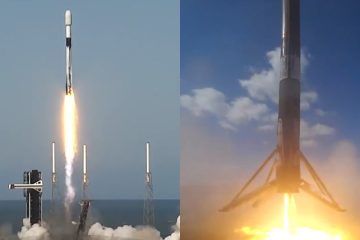Ford: Driving Innovation in the Automotive Industry

Introduction
Ford Motor Company, one of the oldest and most recognized automakers in the world, has been at the forefront of innovation in the automotive industry for over a century. Founded by Henry Ford in 1903, the company has continually adapted to changing consumer preferences and technological advancements. As the world shifts towards sustainability, Ford is intensifying its focus on electric vehicles (EVs) and modern technologies, making it crucial for consumers and investors to understand its current strategies and future direction.
Recent Developments
In 2023, Ford announced significant investments aimed at accelerating its transition to electric vehicles. The company plans to allocate $50 billion over the next several years to electrify its lineup, which includes the release of the highly anticipated F-150 Lightning, an electric version of its best-selling pickup truck. The F-150 Lightning has received a warm reception, with pre-orders reaching remarkable numbers, indicating strong consumer interest in electric trucks.
Additionally, Ford’s strategic partnership with South Korean battery manufacturer SK Innovation marks a significant move to establish a robust EV supply chain. The two companies are collaborating to set up multiple battery plants in North America, enhancing production capacity and contributing to the localization of battery manufacturing. This partnership is crucial as the demand for EVs continues to surge, prompted by rising fuel costs and growing environmental awareness among consumers.
Technology and Sustainability
Ford is not only focusing on electric vehicles but also on improving connectivity and automation in its cars. The company has rolled out advanced driver-assistance systems (ADAS) across its models, emphasizing safety and convenience. With the introduction of Ford’s BlueCruise technology, drivers can experience hands-free driving under certain conditions, making long journeys more comfortable and efficient.
Sustainability is also a core pillar in Ford’s strategy. The company is committed to achieving carbon neutrality globally by 2050. This commitment encompasses various initiatives, including reducing emissions in production processes and utilizing sustainable materials in vehicle manufacturing. Ford aims to build a greener future while maintaining its legacy of producing durable and reliable vehicles.
Conclusion
As Ford navigates through this transformative period in the automotive industry, its investments in electric vehicles and advanced technologies highlight a commitment to future growth. The automaker’s strategic decisions will not only shape its future but also influence the wider automotive landscape. For consumers, staying informed about Ford’s progress in the EV market and sustainable practices will be essential in making informed choices in the rapidly evolving marketplace. With ongoing innovations, Ford remains not just a car manufacturer but a leader in defining the future of transportation.





